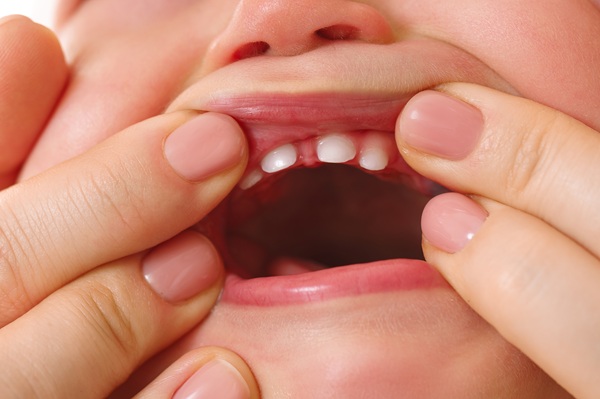When we think about the common causes of tooth decay, we automatically point the blame to some of our lifestyle choices. Things like sugary snacks, poor brushing habits, or even skipping a dental checkup or two. With this, it may come as a shock that there’s another common cause we don’t usually consider: stress.
The stress you feel from work, finances, family, or overall daily responsibilities doesn’t just affect your mood, it also affects your teeth. It can harm your teeth and gums in ways you can’t always see at first, possibly leading to tooth decay.
Let’s take a closer look at the link between stress and tooth health so you can understand what to watch for and what to do about it.
Ready to begin?
Understanding Tooth Decay
Before we dive into stress, let’s quickly go over what tooth decay actually is.
Tooth decay, also called dental caries or cavities, is the breakdown of tooth enamel caused by acids made by bacteria in your mouth. When you eat or drink something sugary, the bacteria feed on the sugar and create acid. Over time, this acid wears away your enamel, causing holes or decay.
Some of the most common tooth decay causes include:
- Eating or drinking sugary or acidic foods often
- Not brushing or flossing regularly
- Dry mouth (not enough saliva)
- Poor oral hygiene
- Skipping regular dental check-ups
Outside of the normal signs to look out for, stress can also play a part in tooth decay.
How Stress Causes Tooth Decay
Can stress cause tooth decay? The answer is yes, it can.
While stress doesn’t directly cause cavities, it affects your habits, your body, and your mouth in ways that increase your risk of developing tooth decay.
Here’s how:
1. Stress Can Lead to Dry Mouth
When you’re stressed, your body produces less saliva. This condition is called dry mouth, and it’s a big problem when it comes to tooth decay. Saliva helps wash away food particles and bacteria, and it also neutralises acid. Without enough saliva, your teeth are more exposed to decay.
2. Stress Affects Your Habits
Stress can cause people to:
- Snack more often, especially on sugary or comfort foods
- Skip brushing or flossing because they’re too tired or distracted
- Drink more alcohol or smoke, both of which dry out the mouth and weaken enamel
These habits can all add up to create a perfect environment for decay-causing bacteria.
3. Stress Can Trigger Teeth Grinding (Bruxism)
When you’re tense or anxious, you might clench your jaw or grind your teeth, often without realising it. Over time, this pressure wears down enamel, making teeth more vulnerable to decay.
4. Weakened Immune Response
Chronic stress weakens your immune system. This makes it harder for your body to fight off harmful bacteria in your mouth, which can contribute to not just decay but also gum disease.
So, while stress itself doesn’t “rot” your teeth, it creates the ideal conditions for decay to take hold and spread.
Signs Tooth Decay May Be Affecting You
Tooth decay isn’t always painful right away. It often starts small, and you may not notice it until it’s more serious. Here are some early signs tooth decay may be present:
- Sensitivity to hot, cold, or sweet foods
- Toothache or discomfort when biting
- Discolouration or dark spots on a tooth
- Bad breath or a bad taste in your mouth
- Visible holes or pits in a tooth
If you notice any of these signs, especially if you’re feeling run down or stressed. It’s important to see your dentist right away.
How to Prevent Tooth Decay Caused by Stress
The good news is, even if you’re feeling stressed, there are simple steps you can take to protect your teeth.
1. Stay Consistent with Oral Hygiene
Stress can throw your routine off, but brushing and flossing are still essential. Brush twice a day with fluoride toothpaste and floss daily. Don’t skip, even when life feels overwhelming.
2. Drink Plenty of Water
Drinking water helps keep your mouth moist and washes away food particles and bacteria. It also encourages healthy saliva flow, which protects your teeth from decay.
3. Cut Back on Sugar and Acidic Foods
Stress can lead to sugar cravings, but try to choose healthier snacks when possible. Foods like fruits, vegetables, nuts, and cheese are better for your teeth.
4. Manage Your Stress Levels
Try stress-reducing activities like:
- Going for a walk
- Practicing deep breathing or meditation
- Talking to a friend
- Limiting screen time and social media
In a nutshell, taking care of your mental health will also help take care of your oral health.
5. See Your Dentist Regularly
Even if you’re feeling fine, regular check-ups are key. Your dentist can spot decay early, give your teeth a thorough clean, and offer tips on how to manage dry mouth or grinding.
How to Handle Tooth Decay
If you already have signs of decay, don’t panic. Tooth decay treatment is common and straightforward when caught early. Your dentist may recommend:
- Fluoride treatments for very early decay
- Fillings for small to medium cavities
- Root canal therapy if the decay has reached the nerve
- Crowns for larger areas of decay or weakened teeth
- Treating decay early is the best way to save your natural tooth and avoid more complex procedures later.
Managing Stress for Better Oral Health
So, can stress cause tooth decay? Absolutely. It can change how your body works, how your mouth feels, and how you care for yourself day to day.
The more aware you are of the connection between stress and oral health, the better equipped you’ll be to stop decay before it starts. A healthy smile isn’t just about brushing, it’s also about balance, self-care, and asking for help when you need it.
Worried About Tooth Decay? Let Us Help
If you’re dealing with stress, tooth pain, or you’re simply overdue for a check-up, now is a great time to take action. At Bellevue Hill Dental, we’re here to support your oral health, gently, professionally, and without judgement.
Book your appointment today and let’s keep your smile strong and healthy, no matter what life throws your way.



